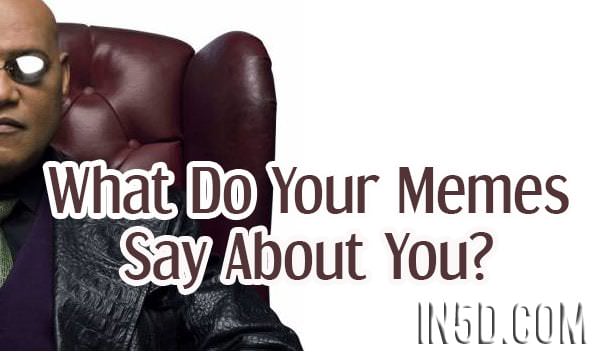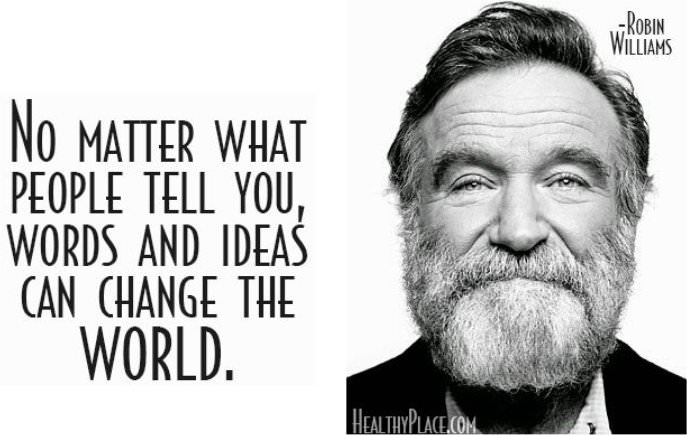
by Thomas Alexander,
Contributing Writer,In5D.com
For hundreds of thousands of years, life on terra firma didn’t change much. Make a shelter, find food and water, and stay alive long enough to reproduce. Basic knowledge for survival was passed orally from parent to child. This worked well enough… for a while. As the repertoire of tasks human beings could perform increased, a more accurate and efficient means of disseminating information was required.
Donate to In5D
With over 6,000+ free articles and 1,200+ free videos, any donation would be greatly appreciated!
Much love for your kind donation,
Gregg
Enter the meme.
The concept of depiction was introduced initially through drawings in the dirt. These however, did not last very long. Eventually, someone figured out how to make pigments, ink and paint; others made tools to carve depictions into stone. Geographically disparate humans agreed upon symbols to depict sounds or concepts in their respective spoken languages. This made the transference of complex concepts and ideas from one generation to another, much easier. Those complex ideas were distilled into knowledge bytes, becoming memes. Memory ‘genes’ containing a bit of encapsulated knowledge, passed from person to person; in much the same way a gene transmits genetic information.
Complex language, depiction, and writing allowed human beings to elevate themselves though co-operative efforts, which extended beyond mere survival. The shift from nomadic hunter-gatherer, to agriculture and co-habitation of a specific place, set the course of natural selection. Ever since, the process of human cognitive evolution has been one of spirituality, intellect, and compassion; shifting from the physical form, to the ‘intangible’ realm of memes and ideas.
Unfortunately, not all of those memes have been particularly good for us. Those hungry for power manipulate information, intentionally spread disinformation, and suppress knowledge that could undermine their authority. Powerful world religions exploit spirituality, and twist ancient truths into a shameful pantomime in order to enthrall the uneducated. Much of our true history has been lost; re-written by victors, who valued their own saccharine praise, more than the truth. Present day plunderers hold chests full of data; secrets, whose knowledge is more valuable than gold. Today, our most valuable assets are intellectual property.
For centuries, intellectuals have sought to expand their ranks for the betterment of humanity. Those who wished to improve the future, found it was beneficial to learn from the past. The ability to interpret the symbols written down by previous generations was requisite to this process. A desire to read was kindled in many curious minds. As society coalesced around centers of trade, ideas were exchanged between enlightened individuals. Schools and libraries were erected to foster a desire for learning, and facilitate the free exchange of ideas. Culture, the arts, science, informed debate, and peaceful disagreement became the norm. At some point, the term intellectual ceased to be an effective epithet.
Due to the ever increasing complexity of human society, natural selection now seems to favor brains over brawn. By the time h0m0-sapiens-sapiens reached the Renaissance era, those who had for so long ruled via brute strength alone; began to see the value of a clever mind, over an iron fist. Great thinkers from all corners of the globe were patronized by world leaders in order to elevate the levels of culture, and technology in their respective domains.
Initially, the purpose of this ‘elevation’ was a more efficient means of making war. However, as the direct result of a ruler’s patronage, the arts, science and culture also flourished. New generations of thinkers sought education. They learned the art of war, and found clever ways to be more efficient at it; in order to attain patronage of their own. Technology has long been the driving force behind conflict resolution. The mentality being, ‘If I have a better weapon, I’ve an advantage over my adversary, that I may slay him without being slain myself’. Indirectly, many technological advances we take for granted, are the result of re-purposed military technology. In many ways, not much has changed… But it should, and it can.
As our technology advances, our level of knowledge and wisdom increase along with it. Violent conflict becomes increasingly distasteful; a pointless waste of human life that could be far better spent. This, is where we are now. We are at a crossroads, where our technology has the capability to either save, or destroy all life on our fair planet. We have a sacred duty to future generations, to impart both knowledge, and the common sense to use it wisely. We are in charge of our own evolution; the world is ours for the making.
Our physiology is the product of many iterations of macro evolution. Our cognition is the result of our exposure to memes. Through the distillation of these knowledge bytes, our culture and technology advances. The laptop computer is a perfect example of this process. Many branches of technology had to evolve, in order to develop the concepts that allow the creation of such a feat of technological wizardry: Understanding chemistry, electricity, metallurgy, the ability make glass and plastic; understanding the laws of thermodynamics, semi-conductors, transistors and diodes; the concepts of mathematics, logic gates, and sets of programmatic instructions that allow the underlying hardware to perform a useful function. All the knowledge about these branches of technology, exist as memes within the human consciousness. Software if you will.
The hardware composing the devices has changed little since inception; a clam-shell design, with buttons for inputting data on the bottom, and a screen for displaying data on top. Inside, a processor, short and long term data storage, power supply, cooling system, and various input/output devices. This evolution has enabled the portable computer to evolve from a geeky toy, into a versatile tool for co-creation.
The earliest laptops couldn’t do a whole lot… Their processors were slow, they ran hot, and really weren’t much better than glorified electric typewriters. They had batteries that lasted all of five minutes. Storage space was also at a premium. Over time, the internals improved in sophistication; silicon chips roughly doubling the amount of transistors that can be packed into a given space every year or so (Moore’s Law). Continuing advancements in computer technology enable increasingly complex programs to be run on an easily portable piece of hardware. Today, the possibilities are as boundless as your imagination.
Human evolution has taken a similar path. Our outward appearance, our hardware, has changed little in the past hundred thousand years. Two arms, two legs, a head, a torso, some muscles and organs, some skin, a bit of hair, and some brains… Our internals have gotten huge upgrades compared to our externals. More are on the way; software updates, in the form of uplifting memes. Try teaching a person two or three generations removed how to use a laptop; the experience can be an exercise in futility. Give a child a laptop, and they’ll find something extraordinary, that you never dreamed it could do.
The folds that store information in our lumps of grey matter are continually growing. The sheer amount of knowledge it takes to interact with the world today, compared to the world of but a hundred years ago, is quite staggering if you stop to think about it. The abundance of fodder for one’s imagination can become overwhelming. Try picking something to watch on Netflix… We’ve had to get a lot cleverer thanks to ever increasing knowledge. But, as a species, we haven’t had the opportunity to translate those vast quantities of unstructured data, into wisdom. If we’re really as clever as we think we are, we’ll pursue the path of peace, and have abundant opportunity to seek wisdom.
Each generation of humanity hopes to pass on a better life to their progeny. We found the best way to do this, is through the transference of knowledge. Correct knowledge, sets future generations on a path for success. Incorrect knowledge… does not. Every person reading this has a virtually limitless set of knowledge at their fingertips, in the form of access to the internet. Unfortunately, not all of it is correct or uplifting.
Like most technology, the internet was originally a means of making war; a way for the computers controlling ballistic missiles to communicate, unleashing their horrors without human intervention, should an ill fate befall the human ‘button pressers’. Today, what initially was fashioned as a means of global destruction, has been repurposed as the most powerful tool for sharing knowledge and spreading peace that humanity has yet conceived of. Talk about beating swords into ploughshares!
By leveraging advanced cognitive powers, one may discern what’s beneficial, from what isn’t. Every day, unscrupulous individuals seek to make a mark of you, by peddling one phony claim after another. Charlatanry in the form of: Fake videos, fake pictures, fake news, fake articles, fake schemes, fake memes, lame names, and fake people with fake dreams.
Don’t get hornswoggled. Knowledge, grants you a data set. Wisdom grants you the faculty to make sense of that data, in order to draw a logical and compassionate conclusion from it. Stories, through a number of literary devices, convey wisdom; distilled through the minds of humanity’s best and brightest. Insightful advice, to improve discernment in future generations; conveyed through metaphor, and culturally relevant imagery.
As much as we have changed cognitively, a lot of us still learn best though story telling. Memes are hard wired into our DNA. For millennia, oral traditions handed down myths and legends to teach valuable life concepts. Those who absorb uplifting memes, achieve their goals. So do those who absorb memes of failure. Many great story tellers have contributed to the rise of new technology, new forms of society, new ways of looking at the world. Others, told cautionary tales, exploring ends that fared poorly. Read a book. Hear the wisdom of the past. Seek what is true, and compassionate; that we may leave the world a better, kinder place.
Our ability to convey complex concepts through written words, imparts considerable sway over perception. Perception is reality. For a bit of truly fresh perspective, pry yourself away from mass media for a few minutes; pop down to your local library or book store, wander at random, and pull a book from the shelf. Read it. Let the universe tell you a story from the perspective of another you; only you can decide upon its veracity, and applicability. You are the teller of your own story. Use your words wisely, and kindly; we’re all one, you know.

What do your memes say about you?
About the author: After many fruitless years of cubicle farm doldrums, I found a way out of the Matrix. The invisible ‘mind prison’, that keeps many firmly ensconced in their cubicles; Dutifully carrying out the bidding of their bovine overlords. I can show you the door, only you can open it.
-Thomas Alexander
Website: http://www.howtolarawith.me/
In5D PATREON: https://www.patreon.com/in5d See our In5D articles the day before they’re released, AD FREE, on Patreon for a minimal donation!
Follow In5D on Patreon, Telegram, Twitter, Bitchute, TikTok, Instagram, Facebook, YouTube, Gab, and Truth Social @greggprescott

